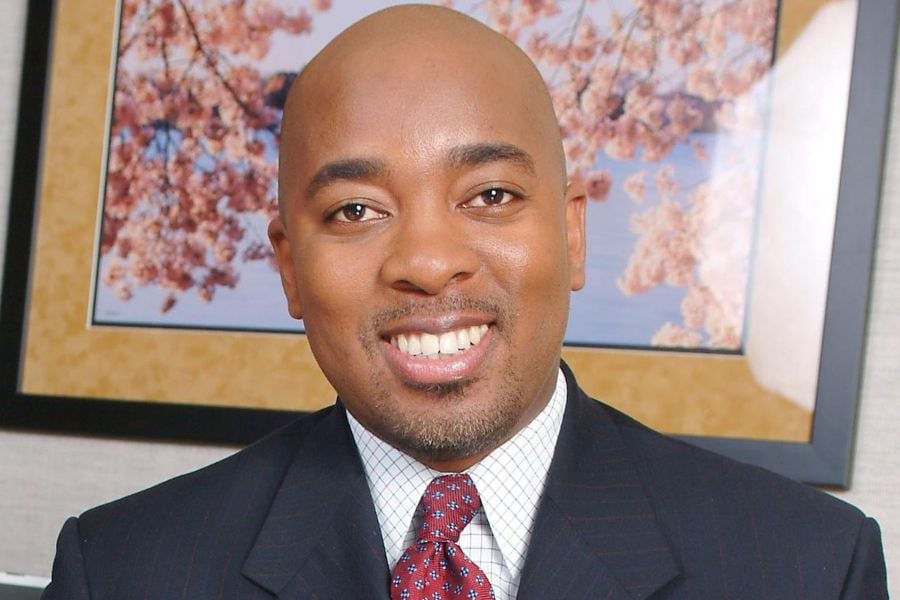

The medical field has always attracted the best and brightest candidates, lured in by both high wages and a chance to make a real difference in the world. However, getting into the sector isn’t without it’s challenges – beyond educational expectations there’s also mountains of debt.
Martin A. Smith, president at Wealthcare Financial Group says that high student loans place a huge burden on these young professionals – which can lead to poor psychological health due to stress.
“One of the biggest challenges they have that's not completely financial related is called physician burnout,” he explains. “They work around the clock and hey have a huge amount of debt for a number of years of medical school. We help them customize their debt in a sense of refinancing options or structured repayment schedules.”
By evaluating different payment schedules, Smith and his team help medical professionals find the most suitable path to manage their debt, ensuring that it aligns with their financial goals and career trajectory.
“Income trajectory mapping is essential," Smith adds. "Medical professionals have a delayed earning curve because they are in school for so long. Aligning their career path with financial goals is crucial."
Smith notes that his firm caters to clients at various career stages, from students to mid-career professionals.
"We meet them where they are," he says. “We like to meet them when they're already practicing, but we do have clients who come to us early to get a jump on financial planning."
High-net-worth individuals also benefit from Wealthcare Financial Group's comprehensive financial strategies. Smith tells IN that the importance of comprehensive financial and retirement planning can’t be understated - which includes estate planning and tax strategies tailored to their income needs and overall net worth.
"We optimize portfolios according to the economic cycle," he says. “We pride ourselves on our proactive measures.”
But Smith’s approach extends beyond individual clients, involving a team with diverse expertise.
"We have a CFA on board, a chartered financial consultant," he says. "One of our advisors specializes in trading and works only with accredited investors. Collaboration among advisors ensures that we can address the specific needs of each client effectively."
Targeting specific markets, such as medical professionals and high-net-worth individuals, has been a key strategy for Wealthcare Financial Group. However, attracting this highly unique set of clientele is not without its difficulties. For Smith, he always relies on two tried and tested methods here.
“Word of mouth and LinkedIn,” he tells IN. “I’ve also been blessed to be covered positively in some national publications. I do a lot of writing and targeting medical doctors and healthcare professionals. Then these healthcare professionals themselves are hiding at work because they may own multiple practices – sometimes it's a medical professional, and on the corporate side of a publicly traded company maybe a pharmaceutical firm. So, they tend to cross each other in concentric circles. We try to broad it out to that overall market for doctors, healthcare professionals, high net worth business owners, associations and nonprofits.”
Looking ahead to what the future holds, Smith is keeping his eye firmly set on upcoming political change. However, when discussing geopolitical risks, Smith is cautious about predicting economic outcomes based on these events.
“We know that Republicans favour low taxes,” he says. “We saw what Trump did when he won in 2016 - he cut taxes – and we know that low taxes are what corporations prefer. When corporate profits increase, eventually they’ll raise prices and this happens En masse throughout the country, eventually leading to higher inflation, an eventual increase in interest rates, and the potential for recession in the future.
“One of the things lower taxes and lower interest rates…the market will rally on lower taxes - especially an interest rate cut. So as a financial advisor, a portfolio manager or investment advisor, we have to be mindful of that and position our client’s accounts for potential growth where we will see it happen as a result of lower taxes.”

While industry statistics pointing to a succession crisis can cause alarm, advisor-owners should be free to consider a middle path between staying solo and catching the surging wave of M&A.

New joint research by T. Rowe Price, MIT, and Stanford University finds more diverse asset allocations among older participants.

With its asset pipeline bursting past $13 billion, Farther is looking to build more momentum with three new managing directors.

A Department of Labor proposal to scrap a regulatory provision under ERISA could create uncertainty for fiduciaries, the trade association argues.

"We continue to feel confident about our ability to capture 90%," LPL CEO Rich Steinmeier told analysts during the firm's 2nd quarter earnings call.
Orion's Tom Wilson on delivering coordinated, high-touch service in a world where returns alone no longer set you apart.
Barely a decade old, registered index-linked annuities have quickly surged in popularity, thanks to their unique blend of protection and growth potential—an appealing option for investors looking to chart a steadier course through today's choppy market waters, says Myles Lambert, Brighthouse Financial.
